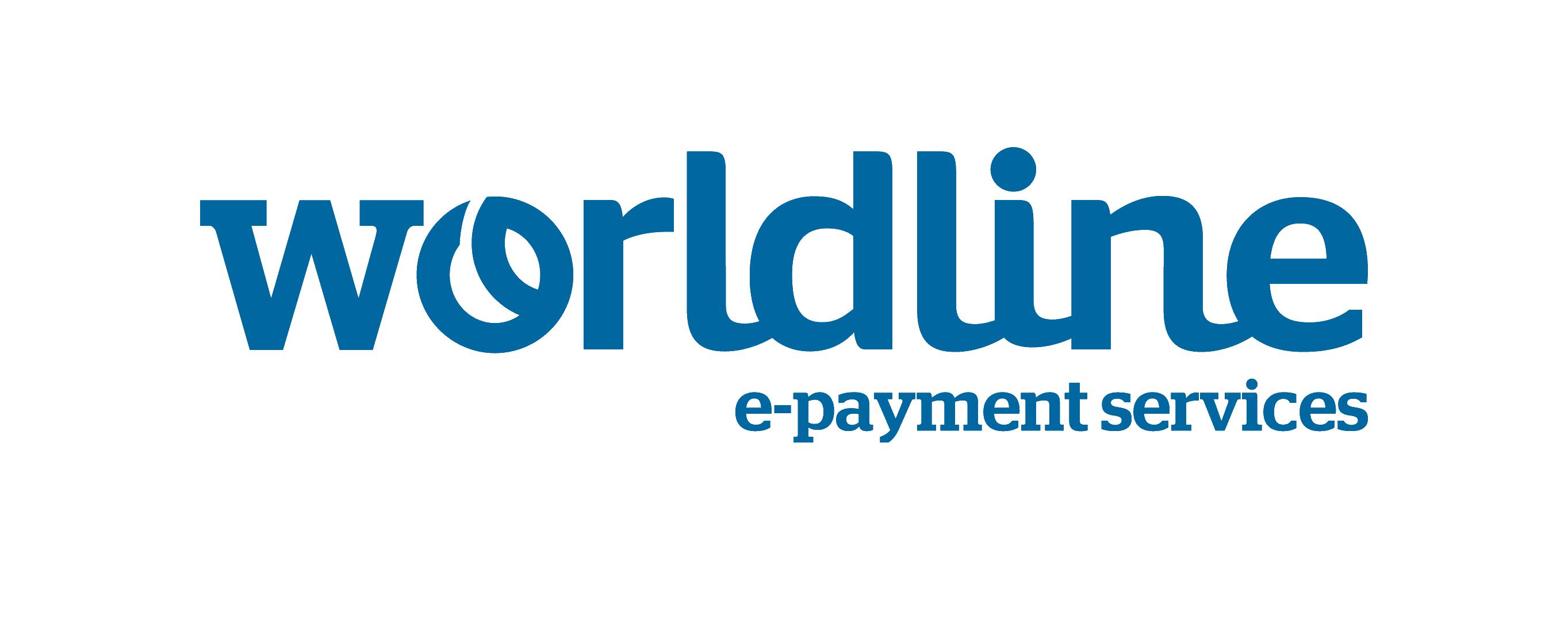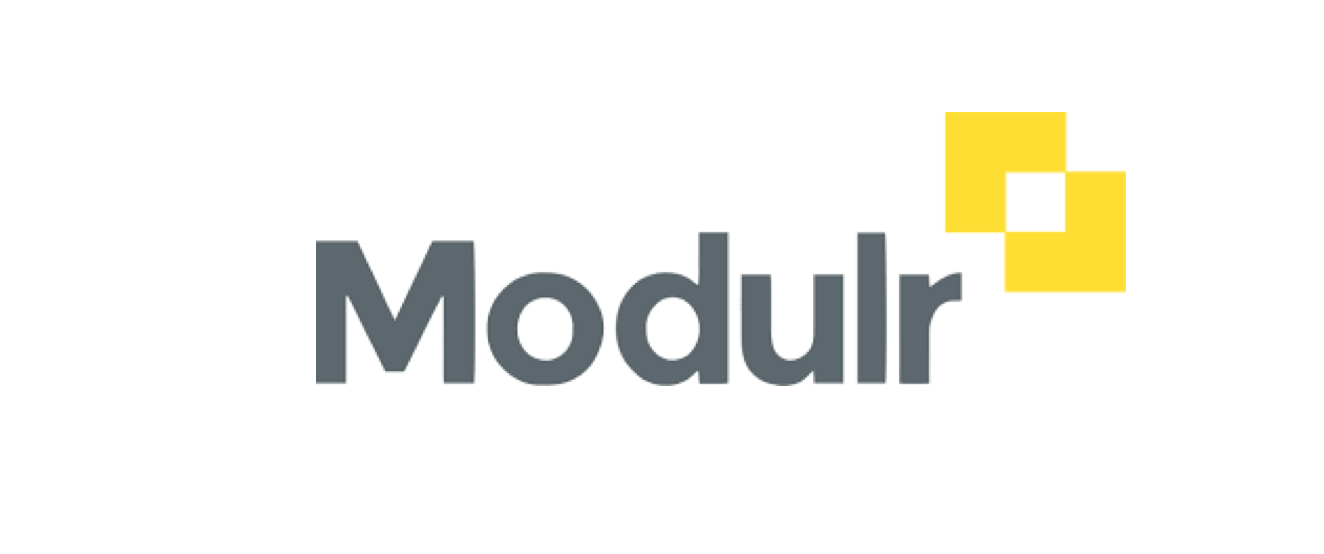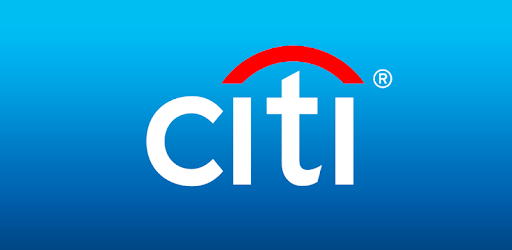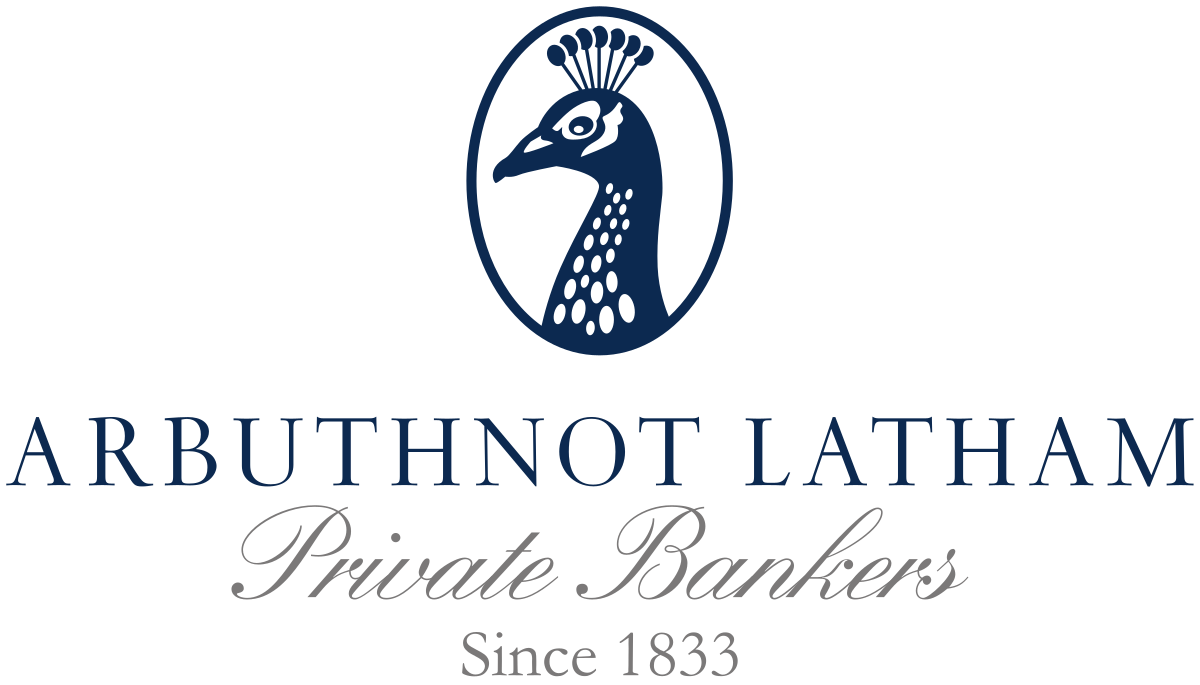Published
- 01:00 am

Mastercard today announced Cyber Secure, a first-of-its-kind, AI-powered suite of tools that allows banks to assess cyber risk across their ecosystem and prevent potential breaches. With these capabilities, banks can identify and prioritize threats and vulnerabilities throughout their cyber environment. Additionally, acquiring banks can help merchants understand their own cyber risk, preventing hundreds of millions of dollars in potential fraud.
As the digital economy expands, both in size and complexity, so too do its points of vulnerability that may be subject to attack. One example of this is the rapidly advancing Internet of Things - 2.5 quintillion bytes of data are generated by people and their devices every day, with 90% of this generated in the last two years alone.[1] It is estimated that one business will fall victim to a ransomware attack every 11 seconds by next year[2].
“The world today faces a $5.2 trillion cyber breach problem[3]. This is one of the biggest threats to consumer trust. At Mastercard, we aim to stay ahead of fraudsters and to continually evolve and enhance our protection of cyber environments for our bank and merchant customers. With Cyber Secure, we have a suite of AI-powered cyber capabilities that allows us to do just that, ensuring trust across every experience, for businesses and consumers,” said Ajay Bhalla, president, Cyber & Intelligence, Mastercard.
Cyber Secure is a big step forward in the continuous quantifying and prioritizing of cyber vulnerabilities. By empowering banks with the ability to continuously monitor and track their cyber posture, it moves our industry to a more proactive state in managing and preventing data compromise, protecting the integrity of the payment ecosystem and consumer data. In addition, it helps to reduce financial losses associated with attacks, saves time and resources, and provides a comprehensive view of cyber risk through one application.
Drawing on the industry-leading capabilities of RiskRecon, acquired by Mastercard in 2020, the risk assessment is performed using advanced AI that combines multiple public and proprietary data sources. The AI evaluates the data against 40 security and infrastructure criteria, with the impact and importance of each vulnerability analyzed to produce a cyber risk rating and issue priority navigator.
In 2019, Mastercard saved stakeholders $20bn of fraud through its AI-enabled cyber systems. Cyber Secure forms a key part of Mastercard’s multi-layered cyber security strategy to secure the ecosystem, protect cyber environments, define industry standards and collaborate across industries.
[1] IBM Marketing Cloud, 10 Key Marketing Trends For 2017
[2] Varonis Cyber Security Statistics, 2020
[3] Accenture Ninth Annual Cost Of Cyber Crime Study, 2019
Related News
- 04:00 am

NTT DATA, a leading IT services provider and its business partner Accourt Limited a leading payment consulting firm, are proud to have released a first-of-its-kind study commissioned by GSMA Inclusive Tech Lab, a global trade group for the mobile industry. The report QR Code Merchant Payments: A growth opportunity for mobile money providers to empower Mobile Money Providers an opportunity to engage better and serve their future customers.
Akihiro Ishizuka, Head of Global Payments & Services Division, NTT DATA, commented: "QR code technology has recently seen a resurgence due to the demand of contactless payments during the pandemic lockdown, and that surge is continuing. The insights we are sharing are allowing mobile money providers globally to access their resilience and guides where to focus on future success in these trying times."
The report provides a detailed study on QR code-based in payments, QR code developments and specifications globally. The research process involved interviews with industry experts as well as Accourt and NTT DATA syndicated research. The findings concentrate on:
- Evolution of QR code payments - insights on the QR code merchant payments ecosystem and various initiatives around the world;
- QR code development - highlighting key learnings from multiple initiatives around the globe and market size;
- QR code merchant payments flow - assisting readers in identifying where they are in their respective journeys;
- QR code merchant payments interoperability - describing QR code merchant payments in the context of an evolutionary journey;
- QR code specifications in the world - insights and perspectives on some of the fundamental technical considerations of QR code-based merchant payments;
- Call to action for Mobile Money Providers - insights and perspectives on the impacts and implications of some of the major QR code merchant payments trends.
According to Vaughan Collie, Managing Partner, Accourt: "Notwithstanding the continued growth of various payments modalities worldwide, COVID-19 has been another powerful force driving the rapid adoption and evolution of truly touchless commerce around the world. Innovative QR code payments technologies are at the heart of enabling this touchless commerce evolution and continue to be extremely well-positioned to thrive into the future. We look forward to the ongoing realisation of QR code payments technology potential globally and the many opportunities it will create as a result."
The report is intended as a resource for mobile money providers to unlock a significant business opportunity to adopt QR code-based payments with a particular focus on their interoperability to achieve scale. Download the report here.
Related News
- 06:00 am

By combining forces with Ingenico, Worldline will become Europe’s new world-class leader in payment services and joins the league of international payment leaders. Worldline is committed to operating payment solutions that enable viable economic growth and reinforce trust and security in our societies. With its global footprint and its dedication to excellence, innovation and sustainability, Worldline is set to accelerate the development of the European payments industry, further shaping new ways of paying, living and doing business.
Merchants can expect solutions and services that support their growth agenda, and a wider range of digital payment capabilities for operational efficiencies and better customer engagement through:
- State-of-the-art integrated payment solutions
- Advanced technology
- Enhanced innovation capacities
- Extended global footprint
Gilles Grapinet, Chairman and CEO of Worldline, said: “This is a very exciting milestone for Worldline, specifically designed to decidedly reinforce the value proposition of our businesses. Having the scale and now global capabilities, we have reshaped our group entirely in order to support, now more than ever, our clients, merchants and banks in particular, enabling them to rely on state-of-the-art electronic payment services to accelerate their own growth as well as their digital transformation strategy. In doing so, we are more than ever committed to contributing to the sustainable growth of the societies we operate in, while remaining at the highest possible level of social and environmental responsibility. Despite the difficult times we are all facing at the moment, I have never been this confident in the group’s potential and future and in its 20,000 employees.”

The new Worldline in a nutshell
- Worldline is the largest European player in payment services and the fourth largest player worldwide, with pro forma revenues of €5.3 billion in 2019.
- Worldline provides its clients with sustainable, trusted and secure solutions across the payment value chain, fostering their business growth wherever they are located.
- With 20,000 employees and powered by the brightest talents in the payments industry, Worldline is shaping new ways of paying, living and doing business.
- With a physical presence in over 50 countries, Worldline is the only European player with an international footprint to rival international payments peers based in the US, providing the full payment ecosystem, from POS acceptance to merchant acquisition. The newly expanded Worldline now has broad access to the US market, greater exposure to merchants in Latin America and Asia-Pacific and the potential for faster expansion in countries with a lower card penetration.
- Worldline offers best-in-class payment services, ranging from online payments, omnichannel solutions and a broad portfolio of payment terminals to issuing & acquiring and digital banking to one million merchants and 1,200 banks and financial institutions, fostering their business growth with deep operational expertise and economies of scale.
A unique value proposition for customers
We bring together Worldline’s extensive coverage of the payment value chain and its expertise in cross-border acquiring coupled with Ingenico’s global exposure to online commerce. Worldline is the competitive choice for merchants and offers clients unmatched coverage of the payments value chain with a unique combination of online, instore and specialised vertical solutions.
Unparalleled footprint and cross-border expertise to serve multinational players

Across Europe, Worldline has a significant presence, with, among others, a leadership position in Germany, a strong position in the Nordic countries and enhanced access to French banks and merchants. These geographical footprint and scale give Worldline strong commercial advantages for multinational merchants, providing customers with enhanced offerings for cross-border payments that can boost their operational efficiency and their innovation agenda.
Payment partner of choice for merchants of all sizes
The new Worldline can meet merchants’ local and global needs. In many countries, the company’s roots go back to the emergence of digital payments with a track record at the heart of national payment landscapes in countries including Belgium, Luxembourg, Switzerland and Austria. Approximately 180,000 merchants within retail, hospitality and the service sector can continue to rely on our proven services. For new customers, on-boarding will be faster and easier, thanks to digital solutions for SMEs and a hardware-independent acceptance platform.
Deep industry understanding for specialised sectors
The distinctive strengths of the new Worldline within different vertical markets create a diverse and powerful solutions portfolio and expert partnerships with key industry players. Our customer-centric organization is dedicated to specialized segments, with Ingenico’s strong assets for retail, travel, health and e-commerce that are complementary to Worldline’s strong heritage in financial services, hospitality, petrol, luxury retail and transportation.
Powering the payments industry with state-of-the-art terminals
Thanks to immediate access to some of the most advanced terminals in the industry, Worldline benefits from an extended global footprint and an undisputed know-how in POS and payment acceptance. By providing the best-tailored payments acceptance solutions to in-store merchants, Worldline is leveraging innovative payment solutions to bring the best customer-experience across the globe.
Now more than ever, accelerated e-Commerce
Worldline is the largest merchant acquirer and third largest online payment acceptance provider in Europe with c. 250,000 e-commerce customers and websites, accepting more than 350 payment methods and with connections to more than 150 local acquirers. Our internationally renowned gateway brings digital natives’ features to retailers across the world.
Enlarging perspectives for Financial Services
As the largest payment processor in Europe, with a successful track record of forging strategic partnerships with financial institutions, Worldline is leading the next-generation payment services such as account-based payments and instant payments. The combination with Ingenico increases Worldline’s payment volumes, widening opportunities for partnerships with financial institutions in addition to 1,200 financial institutions that Worldline currently works with, processing c. 5.6 billion acquiring transactions each year.

Shaping the future of payments
Innovation is our DNA
To contribute to shaping the future of payments and supporting customers in leveraging the shifts in consumer’s behaviours related to COVID-19 and beyond, Worldline will further strengthen product innovation and reinforce its investment capabilities, with R&D investment in excess of €300 million. To shape new ways of paying, living and doing business, Worldline keeps exploring the future of payments through different domains of exploration:
- Personal payments terminal
- New payment in store
- Social & voice commerce
- New payment platforms
- Data services
- Digital ticketing
- etc
Payments solutions to support sustainable economic growth
Worldline is committed to designing and operating digital payment and transactional solutions that enable sustainable economic growth and reinforce trust and security in our societies. With the integration of Ingenico, Worldline will continue to deliver on its vision of a trusted, secure and environmentally friendly payments partner. At this time of great economic and social challenges, the new Worldline will accelerate the transition towards a less cash-reliant economy, whilst making sure this process is sustainable, responsible and socially inclusive.
An expertise relying on the best Worldline & Ingenico talents
Worldline’s success is built upon the talent and passion of colleagues who are experts in their fields, sharing a commitment to excellence, responsibility and innovation. The combined company benefits from a talent pool of some 20,000 experts and a history of almost 50 years working at the heart of the payments industry.
A growth story to continue
The new Worldline is ready to play a key role in designing a more innovative European payments space and reshaping the future of payments in Europe and beyond. Ingenico’s global presence will be a platform for expansion into new markets, creating significant possibilities for business growth, to support its strong ambition to shaping the future of payments.
Related News
- 04:00 am

TrueLayer, the leading technology company building financial infrastructure that’s open to any business, anywhere in the world, today announced that former Amazon executive and American Express Product Leader, Ossama Soliman, has joined the firm as its first Chief Product Officer (CPO).
A highly experienced engineer, product leader and general manager, he joins TrueLayer as the firm continues its global growth, adding connectivity across Europe, and expanding it’s open banking platform for payments and data. As CPO, Ossama will define and manage product strategy and development across TrueLayer’s Product, Engineering and Design teams.
“Finance is going through a transformation of epic proportions as each financial product, service and process will eventually become accessible as a service through an API call. In the same way that lowering the cost of building software products led to an exponential increase in the number of products and the level of specialisation, a similar phenomena is happening in finance,” Soliman commented.
“This will lead to a cambrian explosion of new services from financial and non-financial companies that are more specialised and can serve customers who have historically been excluded or ill-served by financial services. This transformation is underpinned by financial infrastructure that is being built today. Getting to help democratise access to finance through TrueLayer’s open banking platform is incredibly exciting.”
An engineer at heart, Ossama’s early career in his native Egypt included publishing original research in AI and building software for the manufacture of Black Hawk helicopters. After completing an MBA at Columbia Business School in New York, he moved into financial services working at American Express. There he built one of the first large-scale machine learning deployments at the firm to identify and eliminate customer pain points, before leading product development for its alternative banking products and scaling them to serve millions of customers.
Prior to joining TrueLayer, Ossama was the General Manager for Business Lending at Amazon in Seattle, where he helped to create business focused lending and payments products. He scaled the team to more than 90 people across product, engineering, data science, marketing and operations building machine-learning powered products serving millions of users.
“Living in London has always been something that we wanted to do as a family, it is such a vibrant city, with a huge technology and fintech community. TrueLayer appealed to me because it is at the leading edge of Open Banking and is incredibly ambitious in its objectives,” Soliman explained. “Hearing the co-founders Francesco and Luca’s vision and mission was inspiring. While it was already clear to me that this was a firm who had built an incredibly talented team, it also mattered that the firm's approach to culture and its values were also aligned to mine.”
Francesco Simoneschi, CEO and Co-Founder of TrueLayer, commented: “The CPO position is hugely important for us as we continue our global expansion. Ossama’s track record speaks for itself and his wealth of knowledge and experience will be critical during the next phase of our growth. He is passionate about how technology can change lives for the better and the entire team was impressed by his ideas and drive. I’m delighted that with his talent and experience, and with all the options available to him, he wanted to join the TrueLayer family. I have no doubt that he will have a huge impact on our business, our products and our ongoing success.”
Related News
- 08:00 am

AxiomSL, the industry’s leading provider of regulatory reporting and risk management solutions, announced it has gone live with the implementation of AxiomSL’s ControllerView® transparent data integrity and control platform at a major American bank based in Germany. The global strategic implementation enables the client to efficiently manage multiple regulators’ time-critical and complex requirements today and going forward.
The implementation started with AxiomSL’s AnaCredit solution that enables filings across multiple Eurozone countries to meet the requirements of the European Central Bank, the Bundesbank, and various National Central Banks. Following that success, the bank decided to undertake a strategic expansion of its regulatory reporting across Europe by leveraging AxiomSL’s seamless data-driven platform capabilities. The expansion encompasses numerous regulatory mandates, including COREP, FINREP, Bista/Austa Reporting, Resolution Reporting, Million Loans Reporting, liquidity, and local reporting.
The bank claimed it was essential to stay on top of multiple regulatory mandates and reporting needs, especially in today’s crisis environment. The aim is to build a trusted regulatory and risk-reporting ecosystem with AxiomSL’s platform - catering for all current and future regulatory requirements, aligning with the objective of fostering transparency throughout the entire process.
Claudia Thurner, EMEA General Manager, AxiomSL, says: “Germany plays a significant role in driving our future growth and we are delighted to collaborate with our prestigious client on its strategic endeavor. In this current environment where unparalleled changes are occurring, it is critical that financial institutions have a vision for optimizing their regulatory compliance processes and this effort is not a sprint but a marathon.” Thurner continued, “Having grown up in Germany, I fully appreciate the challenges our clients face in complying with Federal Financial Supervisory Authority (BaFin) and Bundesbank requirements, as well as other regulators. I am confident that AxiomSL’s capabilities will enable the bank to achieve its strategic objectives, manage complex regulatory mandates, and future-proof their risk and regulatory reporting.”
Over the next few years, regulators are likely to make pivotal decisions as they navigate these unprecedented times. As a result, financial firms will need to adapt quickly to comply and withstand audits successfully. The antithesis of a black box, AxiomSL’s transparent data integrity and control platform and array of solutions will strengthen financial institutions’ regulatory capabilities. Its data collection, aggregation, reconciliation, calculation, validation, and submission functionalities enable firms to meet multiple regulators’ mandates on a single platform, enhance synergies between business functions and across regional branches, and bolster resilience.
Thurner concluded: “We look forward to continuing the journey with our clients in Germany and around the world, as we navigate a myriad of requirements in this ever-changing regulatory environment.”
Related News
- 02:00 am

Research published by Modulr has identified the current payments dilemma UK businesses are facing. Businesses are caught between the need to reduce operational costs in harsh economic conditions, while continuing to meet rising customer expectation. The research also reveals that the hidden costs of payment process will have an exponentially greater impact on the wider business if left untreated.
A major new independent study of 200 payments decision makers in employment and payroll services, travel, traditional and digital banking and lending and fintech businesses across the UK has revealed the challenges faced when it comes to payment strategy in 2020, which adds to the impact and cost of the COVID-19 crisis.
The research, commissioned by Modulr and carried out by research agency LoudHouse and thinktank TechPros, explores the rising costs of the payment process and its hidden impact on the wider business, and benefits from the commentary of professionals invited to speak on the subject of the research (see below).
UK businesses are spending an average of £1.5m a year in costs attached to payments and, as the UK enters the worst recession on record, this is money they cannot afford to lose to unnecessarily inefficient processes. The payments process now represents a huge 12% of a business’s total operational expenditure, with two-thirds (64%) of all businesses expecting the cost of payment processing to increase over the next two years.
67% believe the way they process, and service payments has a direct impact on their customer experience. In fact, 62% of respondents believe the hidden costs of poor payments outweighs the hard costs. This indicates that a poor payments strategy is no longer something business leaders can ignore as it now has a far greater and unseen impact on wider business mechanics.
The top three hidden costs attached to inefficient payment processes was ‘impact on customer experience/satisfaction’ (38%), ‘influence on relationships with other teams and departments (35%) and ‘impact on competitor differentiation’ (31%).
This suggests there is widespread consensus that getting payment operations right, directly creates performance boosts elsewhere in the business. When asked to estimate as a percentage the business performance boost received if hidden payment inefficiencies were resolved, the average margin for improvement was +14%, with traditional banking the sector most likely (31%) to predict a performance gain greater than +15%.
It also reinforces the critical role infrastructural FinTechs will play in building business efficiency for the next normal. Infrastructural FinTechs, like Modulr, build the ‘tech behind the tech’ that delivers the underlying payments technology for businesses by providing fast, cost effective and efficient alternatives that are accessible and relevant to SMEs and enterprise alike.
The industry reacts to the hidden cost of payments study (Full commentary can be found in the research).
Sulabh Agarwal, Managing Director and Global Payments Lead at Accenture, comments: “The first reaction when revenue goes down for high fixed cost businesses is that the costs need to come down, to keep the business afloat and keep the cashflow going. The more mature organisations, though, are looking at what has changed with the customers – their buying habits have changed, their needs and requirements have changed. And that clearly has an impact on what can be offered and be made relevant to them.”
Michael Rennie, Chief Digital Officer, Cynergy Bank, comments: “At Cynergy Bank, there is a huge focus on creating efficiencies. Ultimately, if we can invest in creating efficiencies, it not only reduces costs for us but more importantly, allows us to deliver what our customers need, when they need it. This could be providing quicker lending decisions or access to finance, enabling our customers to meet their goals for their businesses.”
Paul Sweetingham, Global Solution Leader: Banking & CX at DXC Technology, comments: “The focus needs to be more on the customer rather than internal operational efficiencies and improvements. Obviously, it’s really important to lower costs. But sometimes I feel there’s a danger in too much internalisation of cost reduction. Optimising process automation, we need to ensure we’ve always got customer needs in mind.”
Janis Legler, Chief Product Officer at bitcoin banking app, Mode, comments: “If you’re a financial services company, it’s not that easy to just partner with an up-and-coming backend service provider or just start a digital transformation project. If you don't have the technology at your core, it will be difficult going forward. We work with many merchants and a lot of them tell us about the ‘hidden inefficiencies’. These result from working with incumbent payment players, which has a knock-on effect on other departments such as operations and compliance.”
What’s clear is that by not shedding legacy technology and shoring up operational efficiency, UK businesses are following an increasingly risky strategy, and one which will have an exponentially greater impact on the wider business if left untreated. Particularly when this widespread failure to act concerns the customer experiences that sit at the very heart of a proposition – the payments.
Myles Stephenson, CEO of Modulr, comments on the findings: “A poor payment strategy is not just inefficient, it can have a significant and hidden impact on bottom line performance and customer satisfaction. As we enter into one of the worst recessions on record, businesses must plug any holes in their boat to avoid sinking - and for many this includes their payment operations.
“In the face of increasing amounts of digital payments, and a tough economic environment, UK businesses must ensure they have a robust payments strategy if they are to be in the strongest position to move into the next normal with confidence. This strategy needs to place new technology at the centre of how they operate and receive payments, addressing the hidden inefficiencies that can have a big impact on a businesses’ bottom line and commercial performance.”
The full research will be released on the 29th of October. To receive a copy relevant to your industry, register your interest here.
Related News
- 08:00 am

Surecomp®, the leading provider of global trade finance solutions for banks and corporates, announced ThetaRay as the latest fintech partner to be live on its Marketplace platform. Fully integrated with Surecomp’s back-office trade finance solutions, financial crime solution ThetaRay can now be accessed through open API connectivity to help banks and corporates mitigate the risks of trade based anti-money laundering (AML), fraud and automatic teller machine (ATM) security breaches.
Entering the market to great acclaim last year, ThetaRay is built on big data, artificial intelligence- based analytics used to detect suspicious behavior, real-time anomalies and to uncover previously unidentified risks. One of the most cutting-edge solutions of its kind, ThetaRay plays a critical role in the trade finance digitization journey.
“As financial cyber-crime continues to rise, banks and corporates need to deploy significant measures to protect themselves against fraud, money laundering and suspicious behavior,” explains ThetaRay Chief Executive Officer Mark Gazit. “Surecomp customers can now benefit from our intuitive artificial intelligence, machine learning-based platform to further strengthen their digital risk management strategy.”
“Our Marketplace delivers added value to our customers through direct access to complementary fintech solutions within the trade finance ecosystem,” explains Tsafrir Attar, Surecomp’s VP of Digitization. “ThetaRay is one such solution we are pleased to bring to people’s attention, given that - now more than ever - financial crime is an ever-growing risk that many firms often don’t sufficiently address.”
Related News
- 04:00 am

Citi is pleased to announce that Naveed Sultan has been appointed Chairman, ICG.
As Chairman, Naveed will build and lead a new Digital Policy, Strategy and Advisory practice across all client segments. Recognizing the changes shaping the world through the advent of current and emerging technologies, it is critical that we develop a strategic, coherent and holistic approach to advise our clients and other constituencies including policymakers, and provide them actionable insights to respond to this phenomenon. This new practice will advise governments to develop policies to digitize their economies including their financial systems. It will also provide guidance and thought leadership to corporates and financial institutions to transform their businesses and operating models to stay relevant in an increasingly digital world.
Our global network, particularly in the emerging markets, is a key differentiator. As part of his new role, Naveed will help the firm in its senior interactions with sovereigns, with a particular focus on emerging markets, to help strengthen our relationships and to create commercial opportunities. He will work with me and the regional CEOs and business heads to develop approaches and strategies to respond to the structural shifts of globalization and market transitions and ensure our network remains well-positioned to build a structural advantage.
Naveed is uniquely qualified to lead this new effort. Under his stewardship, our TTS business has grown into a world-class franchise as recognized by our clients, investors and financial services industry for its innovation, sustained financial performance and thought leadership. He has extensive experience having served in roles with strategic, business management and operating responsibilities at a global level and across several geographies, and has developed diverse functional experience across corporate finance, banking, operations and technology, consumer products and transaction banking. He has also led several pioneering initiatives including Digital Money Index and the Centre for Global Finance and Technology with Imperial College.
The role of Head of TTS will be posted and Naveed will continue in his role as Head of TTS until the new head is appointed. He will ensure a smooth transition and will also continue to engage closely with TTS to provide support and guidance on strategy, execution and clients.
Related News
- 03:00 am

Arbuthnot Latham & Co., Limited (“Arbuthnot Latham”), the private and commercial bank, is delighted to announce the finalists of the 2020 Inspiring Innovator Awards, highlighting the continued ambition and creativity of the UK’s home-grown entrepreneurs.
Now in its fifth consecutive year, the Inspiring Innovator Awards supports young entrepreneurs looking to innovate and disrupt, bringing exciting solutions to some of the many challenges facing society today. The Awards look to guide these early stage entrepreneurs and help them build strong businesses with sustainable, long-term growth prospects.
Each year, Arbuthnot Latham identifies four exciting new businesses from The Business School (formerly Cass Business School) and City, University of London. 2020 sees the Awards, which takes place on 19 November, held virtually for the first time. The event provides an invaluable opportunity for entrepreneurs to present their businesses and engage with potential investors, as well as other business leaders and entrepreneurs. This virtual forum for young entrepreneurs to network with key industry players is critical in a remote working environment. The winning business receives a cash prize and a bespoke mentoring package.
With the impact of COVID-19 felt across industries and businesses, 2020 has posed unexpected challenges for entrepreneurs, both new and experienced. But the resilience and determination of business leaders has only increased, with many rising beyond all expectations to meet global challenges.
This year’s finalists span a range of industries including hospitality, wealth management and artificial intelligence, and also social enterprise. The 2020 finalists are EMenuNow, Leiho, WealthAware and Voz.
EMenuNow
EMenuNow is the first universally integrated, ‘plug & play’ contactless ordering and payments service. EMenuNow enables sit-in patrons to instantly access mobile optimised menus on their phones to order and pay for meals without having to download an app. It can be installed in any venue within a day and works with existing hardware infrastructure. This enables venues to optimise profitability and attract patrons by demonstrating their COVID safety procedures, supporting the UK hospitality industry’s bounce back.
Leiho
Leiho is a social enterprise focused on improving the quality of life of the UK’s homeless population. Clean socks are the most requested item at UK homeless shelters, and for every pair of bamboo socks it sells, Leiho donates a pair to a homeless person.
WealthAware
WealthAware brings transparency to retail investing, enabling investors to monitor a diverse portfolio in real time and providing a single value of how a portfolio is doing. WealthAware’s long-term vision is to incorporate every asset that people own, including houses and cars, using real-time data from well-established companies. Ultimately, this will serve to democratise asset valuation and disintermediate the supply chain, bringing cost and time efficiencies.
Voz
Voz is a video dubbing service that leverages the power of Artificial Intelligence in order to automate the process. It provides features like lip synchronisation, voice cloning, and sentiment enabled dialogues, creating a realistic final product and seamless user experience.
Paul Beach, Director of Entrepreneurs at Arbuthnot Latham, said: “Despite the uncertainty and challenges of 2020, we’re beginning to see the emergence of the greatest drive in creativity through disruption since the years of the Global Financial Crisis. More than ever, Arbuthnot Latham is helping to support rising entrepreneurs and young companies break the mould to launch their products, services and solutions to a new age of consumer.
The fifth annual Inspiring Innovators awards serve as the perfect platform to (virtually) celebrate the very best of the next generation of entrepreneurs. I congratulate every one of our finalists on their achievements and can’t wait to work with the winning entrepreneur to help drive their growth and realise their potential.”
Full insight into the 2020 finalists here: https://www.arbuthnotlatham.co.uk/insights/inspiring-innovator-of-the-year-award-2020.
Related News
- 01:00 am

iController is nominated for Deloitte's Technology Fast 50. With a growth rate of 141.98%, the bootstrapped company continues its efforts as an innovative partner.
Today, Deloitte announced the nominees for its Technology Fast 50, the top 50 fastest growing technology companies in Belgium. A striking newcomer is iController, which has seen a turnover growth of no less than 141.98% over the past four years (2016-2019).
iController's revenue growth is the product of a well-oiled machine. Ongoing focus on efficiency, user-friendliness and innovation ensures that not only local SMEs and municipalities find their way to the SaaS scale-up, but also an increasing number of multinationals and international companies.
Not only its customer base, but also the company itself is growing at full speed. Despite the current corona crisis, 10 new employees have been recruited in recent months and 10 other vacancies are still open. "We are now gaining momentum," says founder and CEO Peter Janssens. "It's our ambition to achieve an annual growth rate of 50% in the coming years".
This philosophy - self-driven strong and stable growth - has always been the foundation of the company. iController was developed by Peter Janssens, who operated a collection agency in addition to his position as manager at ABX Logistics. He needed a credit management tool for both positions, but remained unsatisfied with the existing software packages. To meet this need, he developed iController, an integrated solution for credit management.
As a bootstrapped company, iController’s growth was driven fully by its own strengths. Janssens' focus on a qualitative product ensured natural, solid growth, which was exclusively financed by his company’s own turnover.
CEO Peter Janssens said: "Our biggest competitor is Microsoft Excel. Many businesses still manage their accounts receivable manually, which is highly inefficient. As an innovative partner, it is our mission to demonstrate to them how it can be done more efficiently."









